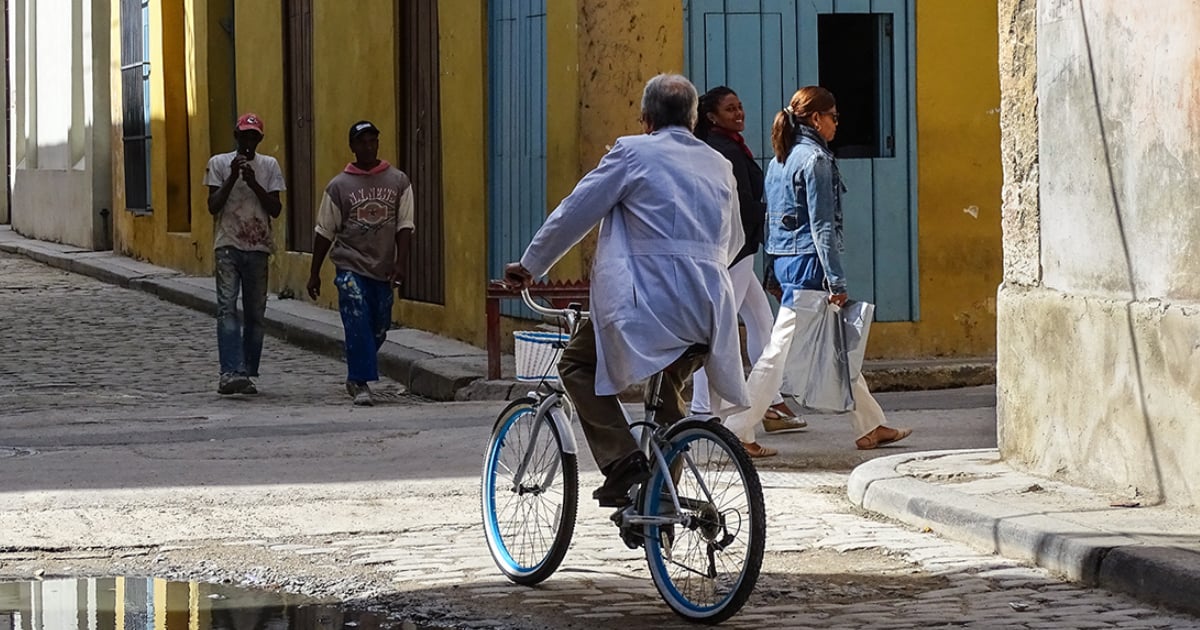While the Cuban government showers praise on doctors during Latin American Medicine Day, the harsh reality faced by healthcare workers in medical facilities is starkly different. The severe shortage of medicines and essential supplies poses a significant threat to patients' lives and hampers doctors' ability to fulfill their duties.
In a post on social media platform X, the Minister of Public Health, José Ángel Portal Miranda, lauded Cuban doctors as a "symbol of humanity and endurance." Yet, such accolades sharply contrast with the everyday challenges that healthcare professionals on the island endure. Far from receiving adequate working conditions, these medical practitioners are compelled to pursue their vocation amidst a healthcare crisis characterized by extreme shortages of drugs, basic supplies, and medical equipment.
The "endurance" highlighted in official statements is merely a testament to the sacrifices Cuban doctors are forced to make. They must battle not only diseases but also a crumbling healthcare system. Ironically, the government praises this resilience while ignoring the exhaustion and resource deprivation that leave many professionals facing critical situations that jeopardize both patient health and their own well-being.
Despite these challenges, the government continues to overlook the demands of healthcare professionals, maintaining a triumphalist narrative disconnected from reality. Cuban leader Miguel Díaz-Canel once again blamed the collapse of the healthcare system on the perennial argument of the "blockade," an explanation repeatedly used in the official narrative to account for the country's myriad issues.
On his X account, Díaz-Canel praised healthcare workers, calling them the "pride of the nation," while keeping them trapped in a repressive regime that limits their freedom of movement. He continued to attribute the shortages they face to the "blockade," sidestepping internal deficiencies that exacerbate the healthcare crisis.
Challenges Confronting Cuban Healthcare Professionals
Among the primary obstacles facing Cuban doctors is the scarcity of medications and supplies, severely restricting their ability to treat patients and forcing them to resort to inadequate alternatives such as the black market. This is compounded by the deterioration of hospitals, where lack of maintenance and basic sanitary conditions endanger both patients and healthcare staff, illustrating systemic neglect.
The mass exodus of doctors further exacerbates the situation, leaving healthcare centers understaffed, particularly in crucial specialties, directly impacting the quality of medical care provided in the country. Insufficient wages are a key factor driving this crisis, compelling many doctors to seek opportunities abroad or in other fields to make ends meet.
Additionally, like other Cubans, doctors must contend with everyday challenges such as rampant inflation, shortages of basic food items, and frequent power outages, complicating their daily lives and ability to perform their professional duties under minimally acceptable conditions.
FAQs on the Cuban Healthcare Crisis
What are the main challenges Cuban doctors face?
Cuban doctors primarily struggle with severe shortages of medications and supplies, deteriorating hospital conditions, and insufficient wages, all of which hinder their ability to provide adequate medical care.
Why does the Cuban government blame the "blockade" for healthcare issues?
The Cuban government frequently cites the "blockade" as the cause of healthcare issues, using it as a blanket explanation for the country's myriad challenges, according to the official narrative.
How does the healthcare crisis affect Cuban doctors' daily lives?
Apart from professional challenges, Cuban doctors face rampant inflation, food shortages, and frequent power outages, complicating their daily lives and ability to perform their duties.
